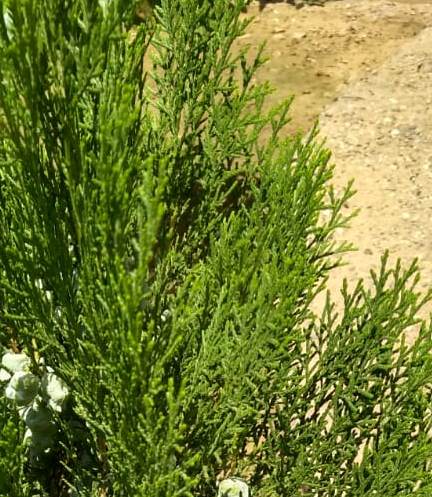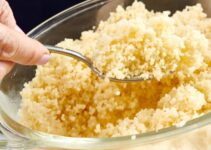What is Shatavari?
Shatavari, or Asparagus racemosus, is an Ayurvedic medicinal herb that plays a vital role in the prevention and treatment of physical and emotional stress. It is a critical Ayurvedic medicine known for vitality and other essential health benefits. It may be taken in powder, liquid, tea, and tablet forms. If Ashwagandha is considered the “ King of Ayurvedic herbs” in the same way Shatvari is known as the “Queen of Ayurvedic herbs”. Besides other benefits, it is good for the overall health of the reproductive system. Shatavari is comprised of two words: Shat means ‘hundred’, and avar means below. Its literal meaning is a hundred roots.

10 Wonder Benefits of Shatavari
- Packed with antioxidants: Shatavari has antioxidants like Saponins, Asparagamine A, and racemose. All these antioxidants help to prevent free radicals and also fight against oxidative stress thereby preventing diseases and disorders.
- Anti-inflammatory: Shatavari contains racemofuran, which is an anti-inflammatory biochemical compound that helps to reduce inflammation in the body without disturbing the digestive process.
- Boosts immune system: Shatavari has been an immunity booster in Ayurveda since ancient times. The eating of the medicinal herb helps to increase the antibodies in the body, thus allowing you to protect yourself from cough, cold, flu, and other seasonal viral and bacterial diseases.
- Effective diuretics: Diuretics help to flush out excess fluid from the body. In much research on mice, it has been confirmed that the use of Shatavari is good for removing excess water from the body, which is incredibly fluid around the heart. Thus, it acts as a diuretic agent.
- Treats ulcers: A study conducted on rats confirmed that Shatavari was effective in treating gastric ulcers like ranitidine.
- Helps to treat kidney stones: Kidney stones are comprised of oxalate, which is found in spinach, beets, and french fries. Releasing these compounds through urine causes excess pain. Shatavari root extract helps to prevent the formation of oxalate in rats. Simultaneously, it helps in the shape of magnesium, which reduces the chances of accumulation of stones in the kidney.
- Lowers sugar levels: Because of the presence of certain compounds, Shatavari stimulates insulin production thereby helping to maintain sugar levels in the body.
- Treats anti-ageing: This ayurvedic medicinal herb is quite effective in treating anti-ageing. It contains phytochemicals called saponins, which fight free radicals and thus prevent your skin from wrinkles and pimples. The herb root also prevents collagen breakdown, therefore beneficial in maintaining skin elasticity.
- Treats depression: The antioxidants present in Shatavari have potent impacts on minimising the effects of depression, as seen in rodents. Thus, it is used as an antidepressant drug. They also affect neurotransmitters, which are linked with depression.
- Improves female reproductive health: A study published in Biomedicine and Pharmacotherapy in 2018 has shown that it improves conditions such as Polycystic Ovarian Syndrome (PCOD) and hormonal imbalances.
10 amazing medicinal uses of Shatavari
- It is an excellent medicinal herb for women.
- The use of it helps in menopause by reducing hot flashes and night sweats.
- It helps to combat diarrhoea.
- It is used to increase breast milk production.
- It also helps in the production of sperm.
- It is a nervine sedative to calm the nervous system.
- It is used to lessen anger and irritability thereby calming the body and mind.
- It is used as demulcent, which brings moisture to the body’s organs.
- It is used to apply topically to soothe the sore joints.
- It is used to balance the Vata and Pitta constitutions.
How to use Shatavari?
Though, many scientific studies have been conducted on mice and rodents for the health benefits of Shatavari or Asparagus racemosus. As far as human beings are concerned, the standardisation of drugs needs to be established. However, 4-5 millilitres of Asparagus racemosus may be taken twice a day as per the guidance of an Ayurvedic doctor. Similarly, tea may also be recommended to be part of medicinal benefits. The medicinal herb is available in powder, tablet, and liquid forms. A regular dose of Shatavari tablet is 500 milligrams twice a day. It is better to consult a health expert to include Shatavari in the dosage.
Side effects of Shatavari
Though its use is safe, some precautions should be taken in regard, like
- Pregnant women should avoid it.
- Breastfeeding mothers shouldn’t use it.
- If you have an allergy, it is better to skip Shatvari or its products.
- Asthmatic patients should also avoid it.
- Since it is a diuretic, it shouldn’t be clubbed with other diuretic drugs.
- Diabetes patients should also take it after the consultation of a physician.





Nice idea. Thanks for sharing this.